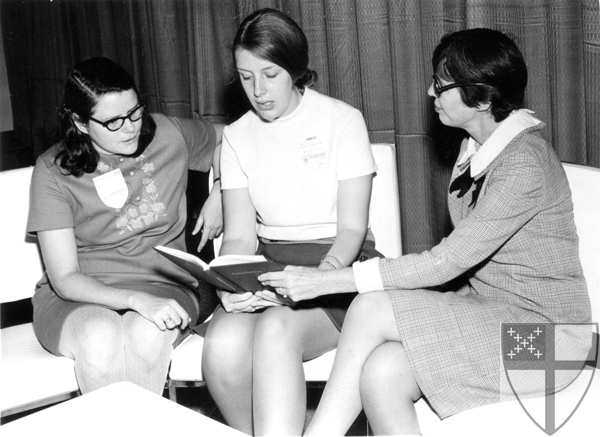The Lead-Up to Ordination: 1970
On the Sixth Day of the 1970 General Convention in Houston, the Committee on Theological Education of the House of Deputies recommended the adoption of HD #41, which would “affirm that women are eligible to seek and accept ordering to the diaconate and the priesthood and to be ordained and consecrated to the episcopate.” The Journal of Convention notes that “the matter was debated at great length,” a microcosm on the legislative floor of the vast debate which had been raging around the issue for months in advance of Convention.
A substitute resolution was introduced removing any approval of women’s ordination, and instead charging the Church to bring the question “to the widest Anglican and ecumenical discussion and debate during the next triennium, including the Anglican Consultative Body,” demanding also that the matter should be presented to the churches with whom PECUSA was seeking unity, including the Roman Catholic and Orthodox churches. After a long debate, a vote was taken on the substitution, and it was defeated. A vote on the original resolution was taken and passed by the lay deputies, but it failed to pass the clergy. This was in marked contrast to the reverse order of the voting blocks on the earlier question of admitting women as Deputies. Proponents of women’s ordination would have to regroup and turn their energies towards the next meeting, slated for 1973 in Louisville.
READ
Women's Triennial, 1970. The members of the Women’s Triennial publish a memorial protesting the decision against women’s ordination.
READ
Women's Ordination — Miserere!, 1970. An editorial from the American Church News Convention Daily remarks upon the failure of legislation permitting women's ordination.



